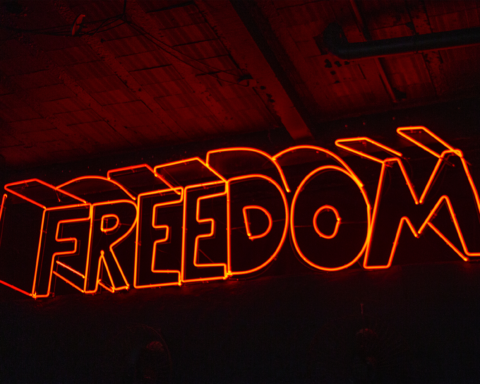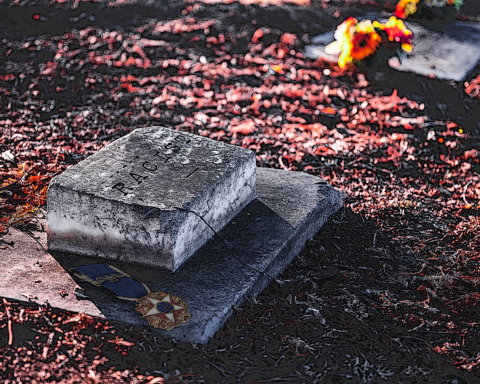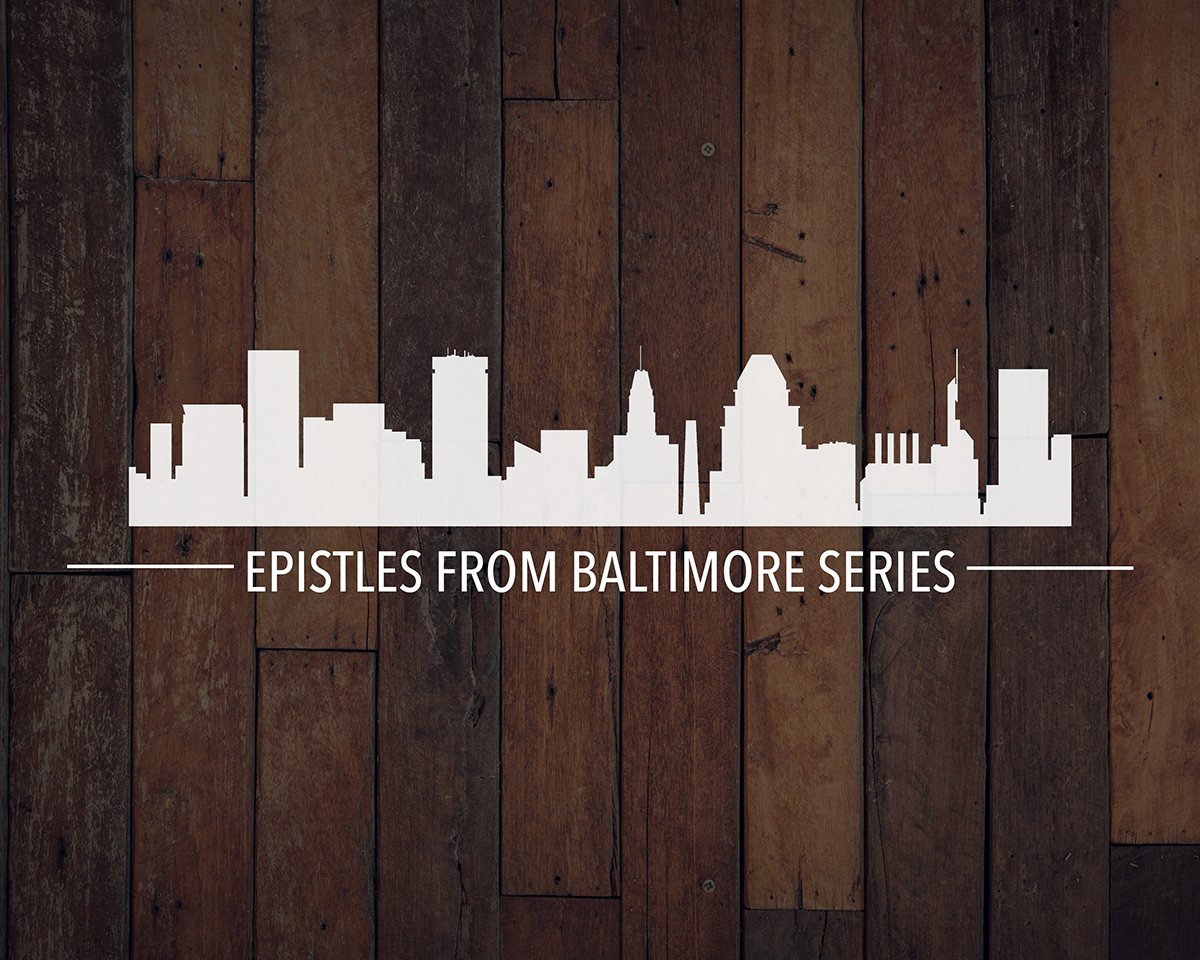This is a personal story about what it means to be part of a movement to change the attitudes of a denomination and our nation, particularly on matters of women’s rights and human sexuality. I write to encourage people to consider serving on national committees, and to encourage the church to retain a strong Presbyterian system of social justice committees and the development of carefully prepared reports and policy. I mourn the vocations sacrificed in years of moral and theological clashes, and applaud the words spoken today (June 4, 2020) by the Rev. J. Herbert Nelson, Stated Clerk of the General Assembly of the PCUSA: “No longer can we hide behind not being controversial.”
Forty years ago, 1980, I was elected by the United Presbyterian Church in the U.S.A. (UPCUSA) to serve on the relatively new Council on Women and the Church (COWAC). Fast forward to 2020. I’m saying goodbye to national service after four years as a member of the PCUSA Advisory Committee on Social Witness Policy (ACSWP). It’s hard to believe that I’ve actually had 40 years of membership and activism in many denominational roles! I’ve attended 31 General Assemblies, missing only Hartford and Salt Lake City. Some of my friends think I’m crazy! But it’s been meaningful and life-giving, in large measure because of the mutual involvement since 1985 with my activist husband, Rev. Mike Smith.
My friends on ACSWP were surprised by this longevity of GA involvement. Chris Iosso and Lee Catoe asked me to write about my experiences, and I’m grateful to do this. These decades have been some of the most contentious in Presbyterian history, and I was with treasured friends in the middle of it. I’ll try to keep this at less than book-length.
Short Bio
Born (1944) and raised in Anchorage, Alaska. Parents were charter members of Central Lutheran Church, and I was the first baby baptized there. I attended Pacific Lutheran University in Tacoma, WA; attended and graduated from the University of Dubuque, Dubuque, IA; married Rev. Bob Brueck, graduate of U of D Seminary. I spent 1966-67 in Detroit, MI, working for President Johnson’s War on Poverty. I also became a Presbyterian. (There’s a story to this: when I found out in college that my fiancé Bob wanted to be a Presbyterian minister, I wasn’t thrilled. So I went to a favorite professor at PLU and told him of my distress. Dr. Stewart Govig told me that he’d gone to Princeton for his PhD in religion, and if he were to be anything but Lutheran, he’d be a Presbyterian. “Go and have a wonderful life,” he said.)
Son Stefan was born in 1972 in Minot, ND, where Bob was assistant pastor and I was the church organist. We moved to Wichita, KS, in 1973 when Bob became associate pastor at Grace Presbyterian with GA Moderator Bill Keesecker. I began work on a master’s degree in sociology and women’s studies at Wichita State, and taught in women’s studies until 1985. In 1976, I attended a Presbyterian women’s meeting and became a founding member of the presbytery’s Task Force on Women. Some in my home church were horrified; others thought it was “cute” that I was such a vocal feminist.
The COWAC Years
After 4 years of membership on presbytery and synod Task Forces on Women, I was elected to the UPCUSA Council on Women in the Church (COWAC) in 1980. This was a huge step for me, to serve at the national level advocating for women’s rights at this time of dramatic change. I was in awe of the men and women from all over the church, and especially the staff person for COWAC, Dr. Elizabeth Verdesi. Liz became my mentor and educator. She was a fierce and fearless advocate, and from her I learned important lessons about institutional structures and social injustice. She taught me (and everyone on COWAC) to monitor the church with a keen eye for women’s inequalities and the courage to speak truth to power. Little did I realize then that Liz was grooming me to be a leading uppity woman in the PCUSA!
In 1983, I went through a painful divorce, but my life was blessed with a joyful partnership in marriage to Mike Smith in 1985 — who was one of 5 male members of COWAC (in a group of 30—committees were much larger in those days).
These were the reunion years of the Presbyterian Church. From 1983 to 1988 COWAC met with its counterpart in the Presbyterian Church (US), the Committee on Women’s Concerns (COWC). Meetings during this time were both heartwarming and challenging. We joined forces to advocate for women’s justice, but we experienced painful division when COWAC recommended against the Plan for Reunion. We feared that reunion would impede the vigorous social justice movement in the “Northern” (or more national) church, and we disapproved of moving church headquarters out of New York City and away from global ecumenical connections and greater human diversity.
In the time I was on COWAC, the major struggles on behalf of women were over the ordination of women (and the Reunion requirement at all churches must elect women elders — with a 7-year grace period of PCUS churches), inclusive language, and abortion rights. Since I had worked as an educator for Planned Parenthood in Wichita and Mike had been president of the board of PP in Tucson, AZ, we became COWAC’s pro-choice face for years at General Assembly. We debated members of Presbyterians Pro-Life and helped organize commissioners seeking to maintain pro-choice Presbyterian policy on reproductive rights.
In 1985, I gave up my membership as a Synod of Mid-America representative on COWAC when I moved to Tucson where Mike was associate pastor of St. Mark’s Presbyterian Church. I stayed active on women’s issues during a year-long honeymoon from employment. This came to an end in 1986 when Mike was called to be the pastor of First Presbyterian Church in Grinnell, IA, and Liz Verdesi made a surprising request: would I staff the newly appointed GA Task Force on Pornography? When we moved to Grinnell that fall and people asked if I was employed, I smiled and said, “Yes, I study pornography for the Presbyterian Church!”
For two years our task force studied this issue that divided feminists and the church, and my experience of leading that study could make a separate article. In 1988, the GA adopted our carefully prepared report, “Pornography: Far From the Song of Songs.” This was a labor of love and one of my most rewarding experiences. Its theology and ethics still illuminate, but it does need updating in light of the internet, personally produced and easily accessible sexual materials, and knowledge of “process” addictions.
When Sex Comes to Church: The Special Committee on Human Sexuality
In 1974 the Rev. David Sindt held up a sign to the General Assembly that said, “Is anyone else out there gay?” That courageous act led to formation of groups on behalf of lesbian and gay rights and a churchwide study on homosexuality, chaired by a woman who would become my mentor on issues of sexuality, Virginia West Davidson. The report brought to the General Assembly in 1978 recommended permission to ordain but was defeated, and stricter prohibition against ordination became Presbyterian policy. One of the most intense conflicts in Presbyterian history commenced and raged for another 36 years.
In 1987, Moderator Isabel Wood Rogers (Izzy) was directed to form a special committee to study ALL issues of HUMAN sexuality, not just homosexuality. I knew Izzy from her leadership at synod school at Grinnell College, and she knew of my reputation from the pornography study. Izzy asked me to be a member of this new committee, which met together in early 1988. Two members resigned and others were appointed, making a total of 17 people from across the denomination with various skills and perspectives. For 3 1/2 years we met, studied, and listened to diverse voices on a wide range of sexuality issues.
By 1990, thanks to ethicist Marvin M. Ellison, we had a framework for our report, and reactions to our work began to heat up. The chair, John Carey, and I were asked to come to Louisville and meet with a group of church officials. This was a disturbing and painful session. They wanted to know if what they’d heard was true, and if it was, would we “tone it down.” John and I remained polite but firm; this was a calling and we were asked to write the best report we could on human sexuality. We were not in favor of changing the framework. So PCUSA leadership intervened and replaced our consultant with an educator who rewrote the framework, watering it down in significant ways. Most of our committee were horrified when we saw the result, and I was sent to a meeting in Atlanta where I reported that we were not going to change the framework. We wanted Marvin’s! This was one of the most difficult things I’d ever done. I left in tears, but we prevailed. The committee voted to go forward with Marvin’s original framework, and it was on to GA in 1991 — along with 12 chapters on specific sexuality issues.
Keeping Body and Soul Together: Sexuality, Spirituality, and Social Justice[i] sold over 60,000 copies before GA, the most of any church publication in memory. Members of our committee were interviewed by many in the media. I flew to DC to be on a CBS news show, and The McNeil-Lehrer Report filmed a discussion of the report by an adult class in our Grinnell church. Immediately following GA’s action, I was interviewed by the New York Times and found myself on the front page the next morning. Later, as Mike and I vacationed in NYC, I was interviewed by Teri Gross on NPR. It was both a heady and a strenuous time.
What happened at General Assembly was marked by pain and disappointment. The committee dealing with our report never discussed its contents. They made a closed-session agreement to take no action on the report but, instead, send a pastoral letter to congregations apologizing for the turmoil that the report caused. In effect, it was not adopted, so it was disapproved. Hostility to the report — which called for a justice-loving sexual ethic of mutuality and ordination of LGBT Presbyterians — was fierce. One motion in the plenary asked that the report be stricken from the Minutes of the GA so evidence of it would be erased from memory in the PCUSA. Gratefully, that was defeated. But the report was enthusiastically welcomed by large sections of the church. I’ll never forget speaking about it for the first time to a group of gay and lesbian Presbyterians at a retreat center in Wisconsin. As I came into the gathering space, I was greeted by strains of Billy Holiday singing “Body and Soul” while tears of gratitude flowed freely.
The report lived on and sparked discussion and disagreement throughout the 90s. Several of us were on the speaking circuit of presbyteries and academic gatherings. I was teaching in sociology and religious studies at Grinnell College and had invitations to discuss the report all over the country, mostly debating the topic of homosexuality. This was a very difficult time for our LGBT friends (there was no talk of QIA+ at this time). Many left the church after exhaustion from repeatedly telling their stories and defending their humanity. Thanks to movement in the culture and increased traction in the PCUSA, the years after 2000 saw Presbyterian votes moving closer to full LGBT inclusion. Ordination and marriage rights came in 2014 and 2016, and the 2020 GA has a recommendation to create a denominational LGBTQIA+ advocacy committee.
Martin Luther King, Jr. was right: “The arc of the moral universe bends toward justice.” And dear God, how long it takes! But thankfully, we’ve seen it bend in our lifetimes! And historians are well into debates over how much the very public, mainline church debates influenced that cultural change.
The Explosion of 1993: “Re-Imagining” and its Aftermath
Not only was the PCUSA in turmoil over sexuality issues; in 1993 a conference by women in Minneapolis struck at the foundation of the church in ways that threatened its entire stability. A group of feminists, womanists (African American), mujeristas (Latina), and other women activists from around the world planned an ecumenical conference attended by 2200 people. It was a dramatic creation of theological and biblical expression by women, and its opponents felt it shook the foundations of Christendom — certainly it shook the Presbyterian and Methodist churches that provided the largest number of participants.
Mike and I attended Re-Imagining — he was one of 200 men — and for almost all of us, it was the most refreshing religious experience of our lives. We sat at round tables of 10, engaging in liturgy created by women, singing, drawing on paper table coverings, listening to speakers, attending workshops — so much inspiration and not enough room to describe it here!
What I want to relate is the aftermath in the PCUSA. One constituency in the church blew its lid and threatened split. Rev. Mary Ann Lundy, the Director of Women’s Ministries, helped to plan Re-Imagining and provided Presbyterian monies, in accord with the long practice of women’s organizations funding innovative ministries. Conservatives demanded punishment and Mary Ann was fired. Women staff who had attended Re-Imagining huddled over lunch hours, weeping and afraid, ringing bells on green ribbons indicating that they would not be silent. The 1994 General Assembly was on the brink of split. For almost two decades, almost no one dared speak the word “Re-Imagining,” and were pressured not to disrupt the denomination with anything that smacked of women and controversy.
Something had to be done! In 1994, my dear friend Mary Kuhns (pastor, former COWAC chair and staff in Women’s Ministries) and I put our heads together, called a small group of rabble rousers, and met to organize an independent feminist group, outside of church structures. The group expanded, and about 55 women and men met near St. Louis to make it official. We deliberated on the name and settled on Voices of Sophia, since using Sophia language from the Bible and early Christian tradition was one aspect of Re-Imagining that was most attacked.
In 1995, Voices of Sophia “came out” at General Assembly, through a door in which we taped (not nailed) our “95 Theses” — our faith and action statement that is the most collaborative work I’ve ever participated in writing. From then on, at GA and in annual gatherings, we sang, danced, reflected, wrote, and made ourselves visible (and to some, annoying and heretical). We held breakfasts ever year featuring women theologians, biblical scholars, and clergy, and these breakfasts were some of the most exciting and sold-out events at GA. Additionally, VOS provided some “cover” for women staff who were under siege and intimidation for doing anything that looked like “Re-Imagining.”
In 2008, as time moved on from the original event, Voices of Sophia merged with the progressive Witherspoon Society to form Presbyterian Voices for Justice (PV4J). Breakfasts with justice-loving women are still held, along with one of the most popular events at GA, the Witherspoon Dance. More than anything, those of us who created and nurtured Voices of Sophia can look back and be proud that we kept bold, unflinching feminist thought and women’s spiritual creativity alive in the PCUSA, even if it was on the margins. That is precisely where the Spirit of Sophia often resides and stirs up action. But denominational women’s ministries struggled in the face of opposition to emergent women’s scholarship and ideas during that time. Also, college women and young women pastors had to find support elsewhere when programs were challenged and eliminated.
Retirement and Beyond
In 2003 Mike and I said goodbye to Grinnell and moved to Tucson, AZ, where we were welcomed “home” to St. Mark’s Presbyterian Church and many friends there. I taught sociology and women’s studies at Pima Community College, for a while, wrote books and articles, and continued General Assembly work on the coordinating team of PV4J. Mike and I have also remained active in the church’s reproductive rights group, Presbyterians Affirming Reproductive Options (PARO). I’ve taught and spoken to various groups (often about sex!), and I’ve been active in choir, the session, and adult ed classes at St. Mark’s.
I reserve this closing for a special thank you. In 2015, I no longer had any denominational role in the PCUSA, and I was missing that level of involvement. So I applied for membership on the Advisory Committee on Social Witness Policy (ACSWP) and was elected by the GA to a four-year term in 2016. These past years of engagement with the social justice policy development of our church have been the frosting on the cake for me. I’ve been ACSWP’s liaison to the Advocacy Committee for Women’s Concerns (ACWC), which is like coming back to my roots in justice-seeking for women.
ACSWP and the two advocacy committees (ACWC and REAC, the Racial Equity Advocacy Committee) are, to my mind, among the driving forces of the Christian gospel in our denomination. I’ve had the opportunity in these four years to be part of the larger global struggles for justice on race, sex and gender, Palestine, planetary survival, world order, patriotic citizenship, changing families, and more.
I thank my friends on ACSWP for embracing me with love and leadership, even when I recommend strategies from the past and new approaches that others still want to “tone down.” We share a wonderful commitment to action-directed research and a calling to resource the whole church’s prophetic voice. Especially my heart is full of gratitude to Chris Iosso, ACSWP Coordinator, more than a decade younger, yet whose knowledge of social change in the church complements mine. To all who have nurtured me on this journey, I am grateful beyond words.
I will close with my favorite quote — in the spirit of Galatians 5:1 and expressive of my deepest feelings over these 40 years:
“The work of enlarging human freedom is such nice work, we’re lucky to get it.” – Kate Millett
Publications:
Pornography: Far From the Song of Songs, Louisville, KY: PCUSA, 1988.
Reconciling the Broken Silence, Louisville, KY: PCUSA, 1993.
With three other editors, Called Out With: Stories of Solidarity in Support of Lesbian, Gay, Bisexual, and Transgender Persons, Louisville, KY: Westminster John Knox Press, 1997.
With Marvin M. Ellison, Body and Soul: Rethinking Sexuality as Justice-Love, Cleveland, OH: Pilgrim Press, 2008.
Co-author: Religious Freedom Without Discrimination (resolution adopted by the General Assembly in 2018)
[i] Digital copies of the 1993 report, the 1978 report on homosexuality in the church, and papers from the Reimagining Conference are all available from acswp@pcusa.org and are part of a collection of social policy statements being made available online. Some have long been available on the ACSWP website under “Social Witness Policy by Topic”: https://www.presbyterianmission.org/ministries/compassion-peace-justice/acswp/topics/
Sylvia Thorson-Smith is a current but rolling off member of the Advisory Committee on Social Witness Policy for the Presbyterian Church USA and long-time activist for gender, LGBTQIA+, and reproductive rights.






Unbound Social